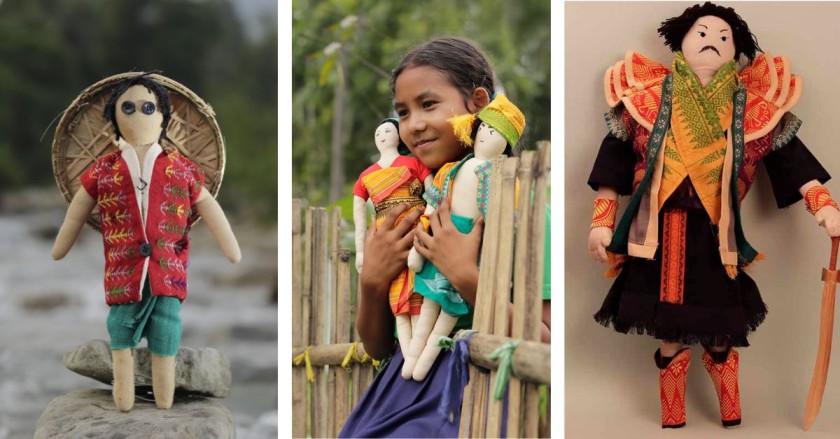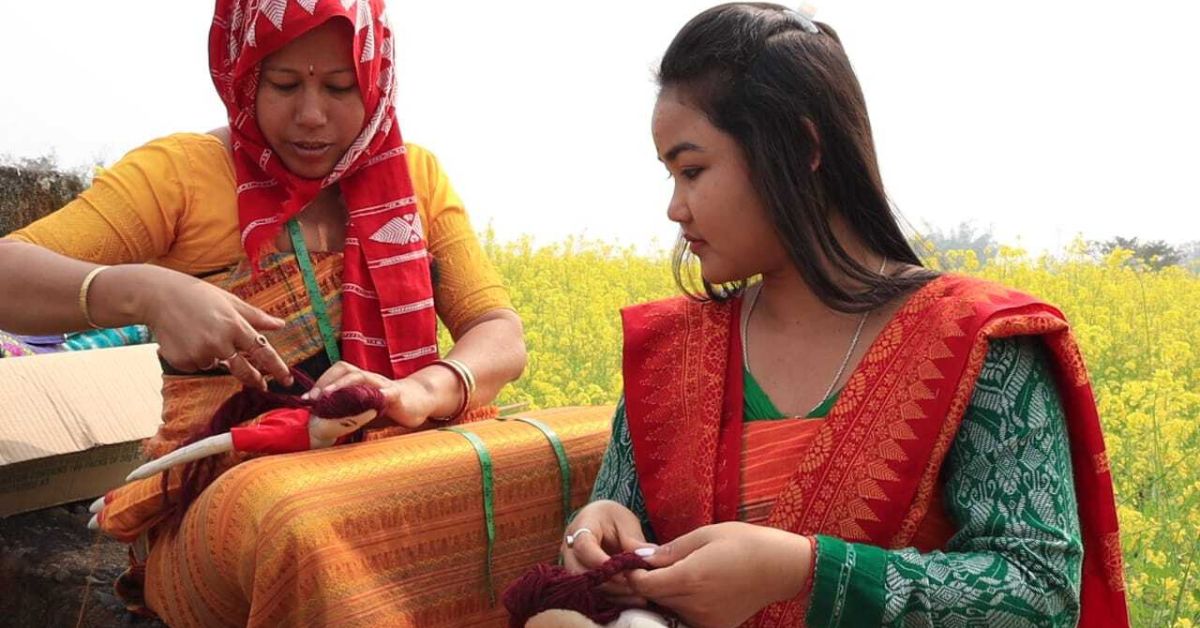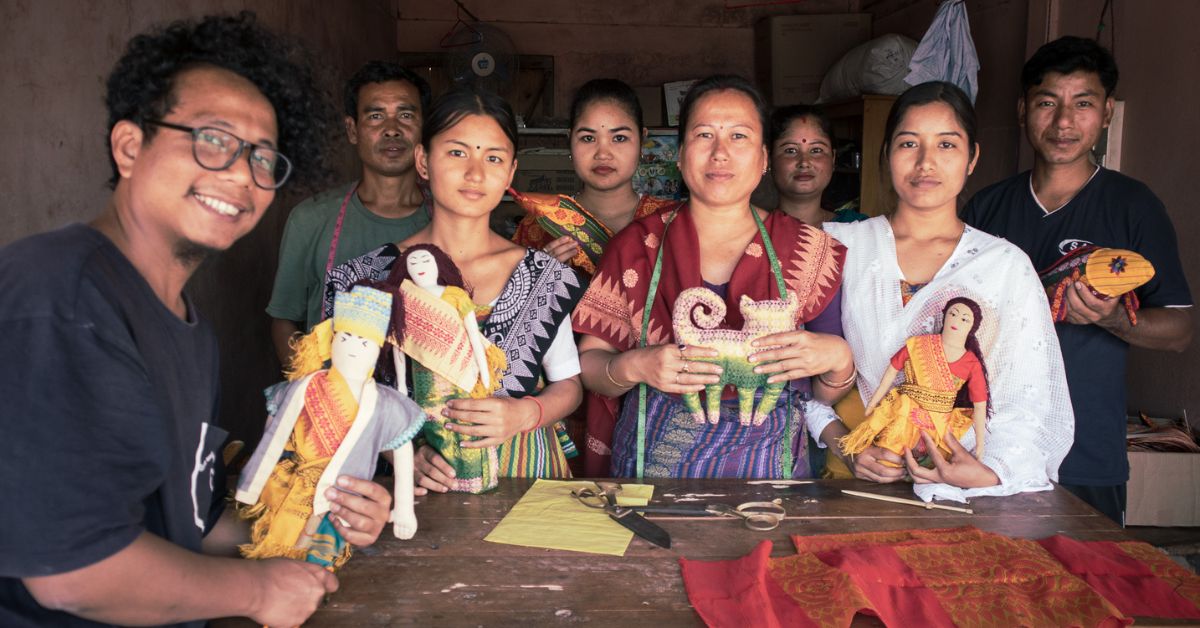Growing up in a small village located between the border of India and Bhutan in Assam’s Baksa District, Kirat Brahma’s childhood was full of folklore and tribal tales.
“These stories have been a part of my childhood and many others in my community. However, the current generation is missing out on them as they consume so much content online and on television,” Kirat tells The Better India.
After completing his graduation from the National Institute of Design (NID), Kirat started to work as an animation designer. “I worked in the industry for more than a decade for clients all over the country. I loved experimenting with design and various aspects of animation, but deep down, I always longed for home,” says the 32-year-old.
As Kirat lived in various parts of the country, he became more aware of the discrimination and lack of awareness concerning people from the Northeastern states. By 2020, when the pandemic hit, Kirat had made up his mind to return home and start looking for ideas.
“I wanted to create a product that highlights our culture to the upcoming generations. I also wanted to open a whole new world for people not aware of the Bodo culture. What could be a better way of introducing kids and people to my culture than with soft toys?” he says.
So he started Zankla Studio in 2021 with the aim of showcasing the rich culture of the Bodo Tribe. The studio creates handmade plastic-free soft toys that narrate stories deeply connected to the local culture and traditions of the Bodo community.
Representing people from the Bodo community

“When I was growing up, I did not have toys that represented people like me and others from my community. The markets are flooded with Spiderman, Mickey Mouse and Barbie dolls. So I wanted to create something to spread awareness among people about the existence of Northeastern communities,” he notes.
Each toy created at Zankla Studio carries a narrative native to the tribe or is a representation of a prominent person from the tribe, such as Ada Lowdoom — a Bodo traveller, Bodo Jwhwlao — a traditional Bodo fighter, Gowdang Rani — a Bodo princess.
It comes with a pamphlet containing the story or tale of the fictional or real character that the toy is based on, explains Kirat. “The sole purpose of these toys is to generate conversation among people about the community. A lot of research and thought is put into creating each toy. We have so many lost stories and characters from folklore. We create our toys based on them,” he says.
“For instance, we have Gowdang Rani — the full moon queen who holds a lot of importance for the people of the Bodo community. Whenever there is a war or some sad occasion, she is believed to visit her people to motivate them. Then there is Gambari Sikla, who made historical contributions, such as fighting against both the Bhutanese and British,” he adds.
“The toys look like us and are dressed in traditional clothes, like the authentic Assamese saree, along with traditional accessories, swords etc. The attire can be changed. All the toys are handmade and plastic free. We also make soft toys of animals such as wild buffalo and fish, as they have a great significance to the people of the community,” he shares.
Handmade, plastic-free toys that tell stories
Kirat says that all the materials used to create these toys are sourced from local markets.
“The local economy needs a good boost; my community’s youth do not have many opportunities. They either leave the village and move to cities or join the Army. I try to employ as many artisans from the community itself to provide them with a work opportunity,” he says.
He says they have sold around 100 toys so far. Each toy is usually priced anywhere between Rs 800 to Rs 3,000 depending on the work involved. They are also working on adding more categories. “The people receive our toys with a lot of love,” he remarks.

He further shares that the real test of the toys came when he received an order from a 90-year-old woman from Mumbai. “It was her 90th birthday and she wanted to gift something to her friends. She had read about me and was curious to see the products. I was delighted as a woman sitting in some other part of the country was showing interest in my product,” he says.
“I have been to the area and knew a bit about the women, the attires, and their culture. While I was looking for some ideas for the gifts I found Zankla Studio and was very impressed. I ordered 50 small birds for my guests and a pair of dolls for my niece’s daughter. The quality of the products is great, but what makes them special is the message behind them. The dolls were wearing sarees and their traditional gamochas (traditional Assamese clothing) which made them a great hit,” says Neela D’Souza.

Talking about the toys, Vibha Kamat, Neela’s daughter-in-law says, “The toys really open up a whole new world for the children. My mother-in-law’s niece’s daughter had a lot of questions about why the doll was dressed a certain way, or where she is from. This introduced her to a whole new tribe and community that resides on the other side of the country.”
As for future plans, Kirat says, “I wish to hire more artisans, hence provide more employment opportunities to the people of my tribe. To me, this is more than just a business; it is my chance to add value to my community and showcase it to the world.”
Kirat’s toys are available for purchase on his website and his official Instagram handle @zankla_studio.
Edited by Pranita Bhat
No comments:
Post a Comment